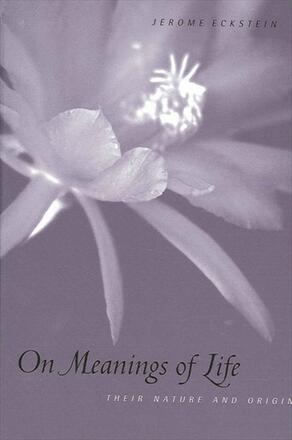
On Meanings of Life
Their Nature and Origin
Alternative formats available from:
Explores the factors that make for a meaningful life.
Description
Addressing the question of what makes life meaningful, Jerome Eckstein explores the ways in which we can heighten or diminish the quality of our life experience. He focuses on two contrasting attitudes toward life experiences: "interested" (goal-oriented) and "intraested" (non-goal-oriented, i.e., something directed only at itself) and shows that both attitudes are important and necessary in order to make life meaningful. Philosophy, psychology, religion, myth, poetry, and music are all brought to bear on such specific life-meaning issues as work, play, love, art, neurosis, and happiness, and in a touching epilogue, Eckstein discusses his own life meanings in terms of metaphysical loneliness, laughter, and dignity.
Jerome Eckstein is Professor Emeritus of Judaic Studies at the University at Albany, State University of New York. He is the author of several titles, including Metaphysical Drift: Love and Judaism; The Deathday of Socrates: Living, Dying, and Immortality—The Theater of Ideas in Plato's Phaedo; and The Platonic Method: An Interpretation of the Dramatic-Philosophic Aspects of the Meno.
Reviews
"Jerome Eckstein is one of the most important thinkers that I have read. I find very stimulating in this particular case his linking musical thought in the sonata form to wider philosophical ideas." — Murray Perahia
"Here we have a mature and refined thinker exploring some fundamental issues about human existence." — Michael Oppenheim, Concordia University
"This beautifully written book deserves to be studied by everyone concerned with the perennial questions. The important term 'intraested,' coined and explained by the author, will undoubtedly find its lodgement in all future philosophical dictionaries and discourse." — Louis Jacobs, author of Beyond Reasonable Doubt